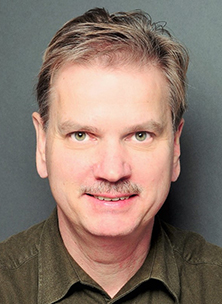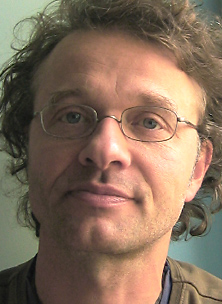Overview
In March, the semester topic will start a training cruise for international early career scientists on the German research vessel METEOR on a research cruise from South Africa to Brazil.
During the summer semester a series of public lectures and a scientific workshop on “Biodiversity & Fisheries” will take place in Kiel.
Moreover, in collaboration with the public outreach department of the Cluster of Excellence “The Future Ocean”, an interactive exhibit for the “Future Ocean Dialogue” exhibition will be developed and in collaboration with the Muthesius Academy of Fine Arts and Design a student project will be launched.
Contact: Anke Schneider, anke.schneider@email.uni-kiel.de
Dates
Lecture series
|
Speaker Institute |
Date/Time Location |
Title |
|
Prof. Wolfgang Hiller Alfred-Wegener-Institut (AWI), Bremerhaven |
19.05.2016/13:00 Wissenschaftszentrum, Fraunhoferstraße 13, 24118 Kiel |
„Tsunami Frühwarnsysteme - Ein Blick hinter die Kulissen“ |
|
Prof. Boris Worm Dalhousie University, Canada |
02.06.2016/17:00 Zoologisches Museum, Hegewischstraße 3, 24105 Kiel |
„Big brother’s blue eyes: Wie Beobachtungen aus dem Weltall die globale Fischerei verändern“ |
|
Dr. Ute Münch Helmholtz-Zentrum Potsdam, Deutsches GeoForschungsZentrum (GFZ) |
09.06.2016/17:00 Audimax, Universität Kiel, Christian-Albrechts-Platz 2, 24118 Kiel |
„Warum wir die Rätsel der Ozeane lösen müssen“ |
|
Jens-Georg Fischer Bundesamt für Seeschifffahrt und Hydrographie (BSH), Hamburg |
16.06.2016/17:00 Schifffahrtsmuseum, Wall 65, 24103 Kiel |
„Meereskunde am Bundesamt für Seeschifffahrt und Hydrographie: Damals – Heute – Morgen“ |
|
Dr. Pedro Afonso University of the Azores (IMAR), Portugal |
28.06.2016/17:00 Hörsaal, GEOMAR, Düsternbrooker Weg 20, 24105 Kiel |
„Living on the ridge: tracking the movements of marine animals in the mid-Atlantic“ (in english) |
|
Prof. Uwe Send Scripps Institution of Oceanography, USA |
14.07.2016/17:00 Hörsaal, GEOMAR, Düsternbrooker Weg 20, 24105 Kiel |
„Autonome Ozeanbeobachtung: das Dilemma der Meeresforscher“ |
Contact:
Anke Schneider,
anke.schneider@email.uni-kiel.de
Workshop
In a two-day workshop a group of 60 experts will reflect on the current state of defining ‘Essential Ocean Variables‘ for monitoring and assessment of marine biodiversity and ecosystem health. They will highlight the main gaps in knowledge and discuss future needs in observing biodiversity, also for helping fisheries. The ultimate goal to which the workshop will contribute, is to define a consistent and internally accepted set of variables to observe, assess, and monitor biodiversity and the marine ecosystem. A joint session on “Biodiversity and Fisheries” together with the participants of the General Assembly of the EU project “AtlantOS” will initiate the workshop on 30th June. In the evening an impulse lecture followed by a poster session will take place and on 1st July specific topics and questions will be discussed.
Registration is required.
hotels in Kiel
Contact: Anke Schneider, anke.schneider@email.uni-kiel.de
Art Project
Following a kick-off meeting in April to get familiarized with the subject, the students have three months to develop ideas and to present their concepts during a semester topic event. The goal is to implement one or several projects, possibly also within the exhibition “Future Ocean Dialogue“.
Contact: Anke Schneider, anke.schneider@email.uni-kiel.de
Exhibition module
What are gliders, floats and drifters? Who can measure how deep? Where can seals help us to observe the ocean? What and how big are eddies?What does the Baltic Sea have in common with the Atlantic “Bermuda Triangle”? Is the ocean short of breath? How can satellites help in observing the ocean? Why do we still need research vessels when satellites can observe the ocean?
The answers to these and more questions will be illustrated on an interactive globe and can be worked out individually by the visitors.
Contact: Anke Schneider, anke.schneider@email.uni-kiel.de
MyScience-Cruise
The aim of the expedition was to give young student scientists an understanding of methods for ocean observation at an early stage of their careers. For this reason, nine students from the international network of Kiel’s marine sciences who do not normally have the opportunity to take part in an expedition were selected for this special research trip. During the cruise, the students studied the exchange processes between the Indian, Pacific, Southern and Atlantic Oceans in relation to heat transfer and freshwater transport, circulation changes as well as the distribution of species and pollutants. For this purpose, they used a variety of modern sensors and observation systems.
The students reported on their experiences on board in a blog at http://www.oceanblogs.org/mysciencecruise/
Further information on the cruise and its participants can be found at https://portal.geomar.de/web/mysciencecruise
Contact: Anke Schneider, anke.schneider@email.uni-kiel.de








